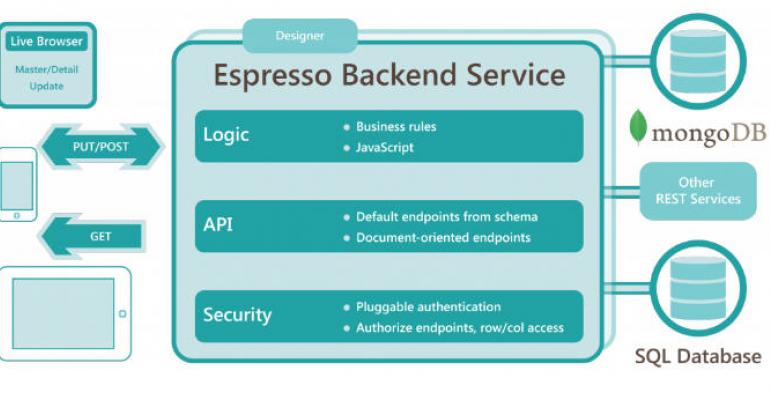At this year’s IT/Dev Connections in Las Vegas, I met with Espresso Logic’s CEO and founder R. Paul Singh to talk about the latest release of their Backend-as-Service (BaaS) offering Espresso. Espresso will be released today (September 16th 2014) at IT/Dev Connections.
Espresso will be available on Microsoft Azure and it features a reactive programming model that provides integration with Azure Active Directory for authorization and Azure SQL.
Espresso is a backend database development tool that can bridge the gap between big data and relational data. It can connect to a variety of data sources including SQL Server, Azure SQL, MySQL, Oracle and the NoSQL MongoDB. Its rules based engine enables developers to be far more productive than they could be with traditional development languages like C# or C++. The Espresso BaaS is unique in that it is the first product to bring reactive programming to application backend development. Database developers use it to create REST APIs that they can consume from their web and mobile applications. Espresso also provides the ability to extend its development model using JavaScript. Paul told me how one of their health care customers used Espresso to create a physician’s portal that combined mobile data captured from wearables in a MongoDB database with patient records stored in Azure. Espresso enabled them to cut their development time down from month to weeks.
Related: Espresso Logic: Bridge Big Data with SQL Data
Espresso is available on Azure immediately and there is a 30 day free trail. Licensing is based on the size of the Azure VM that you use and it starts at $500 per month for a production server. You can find more information about Espresso Logic Espresso Logic: Bridge Big Data with SQL Data. You can get started with their free trial from the Espresso Logic website.





